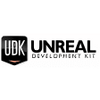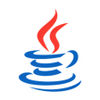Free Text Editor for Coders
Free Text Editor for Coders
Pros
- Highly customizable and extensible through Emacs Lisp
- Supports a multitude of programming languages and tools
- Free to use with an open source license
- Backed by a strong, community-driven support system
- Command line and graphic user interface options cater to varied preferences
Cons
- Has a steep learning curve for beginners
- Complexity may be intimidating or excessive for simple text editing tasks
- Higher resource consumption compared to simpler text editors
Comprehensive Code Customization with GNU Emacs
GNU Emacs stands out in the realm of text editors, offering a robust platform for coding and text manipulation that caters to a variety of programming needs. Its versatility is unparalleled, providing both novice and experienced coders with a feature-rich environment to optimize their workflow. This extends beyond mere text editing — GNU Emacs is an adaptable tool that supports multiple coding languages and interfaces, ultimately serving as a multifunctional workbench for digital creators.
Workbench for the Adept Programmer
At its core, GNU Emacs is more than a text editor; it's a fully integrated development environment. Users can customize it extensively, tailoring it to their specific preferences — a testament to its flexibility. The packaged command line interface is notably intuitive, facilitating direct manipulation of code and environment without the need for excessive mouse interactions. Additionally, those who favor a more visual approach can capitalize on the graphical user interface, which maintains the program's powerful capabilities in a more accessible format.
One of the distinguishing features of GNU Emacs is its incorporation of an integrated Lisp dialect — Emacs Lisp (elisp). This allows for profound customization and extension, enabling users to write new functions and commands in elisp to expand the editor's capabilities. This level of programmability offers an unprecedented degree of control, enabling users to mold their tools in accordance with their needs.
Customisation and Extensibility at its Peak
The appeal of GNU Emacs lies in its remarkable extensibility. Users can personalize virtually every aspect of their environment, from the aesthetics to key bindings, behaviors, and tools. The customization process is aided by a vibrant community that has developed thousands of packages and extensions over the years. From syntax highlighting for obscure languages to project management tools and integrated debugging, the available packages transform GNU Emacs into a powerhouse of productivity.
Steep Learning Curve, Rewarding Mastery
While GNU Emacs boasts numerous advantages, newcomers may find the learning curve somewhat steep. The plethora of commands, key combinations, and customization options can be overwhelming at first. However, the investment in learning this editor is met with substantial returns. As proficiency grows, so does the ability to streamline and personalize the coding workflow, resulting in significant efficiency gains.
Moreover, the open-source nature of GNU Emacs ensures it is free to use and modify. A dedicated base of volunteers tirelessly work to improve and update the software, ensuring it remains at the forefront of text editing technology. The collaborative ethos of its community not only fosters constant innovation but also a supportive environment for troubleshooting and learning.
In Conclusion
GNU Emacs is a powerful ally in the programmer's toolkit, equally serving the needs of writers, researchers, and anyone for whom text manipulation is an essential part of their digital toolkit. With its extensive customization options, potent extendability, and supportive community, GNU Emacs represents a significant asset in anyone's software arsenal. While the initial adoption may require adaptability and patience, the payoff in terms of productivity and customization is substantial.
Pros
- Highly customizable and extensible through Emacs Lisp
- Supports a multitude of programming languages and tools
- Free to use with an open source license
- Backed by a strong, community-driven support system
- Command line and graphic user interface options cater to varied preferences
Cons
- Has a steep learning curve for beginners
- Complexity may be intimidating or excessive for simple text editing tasks
- Higher resource consumption compared to simpler text editors




